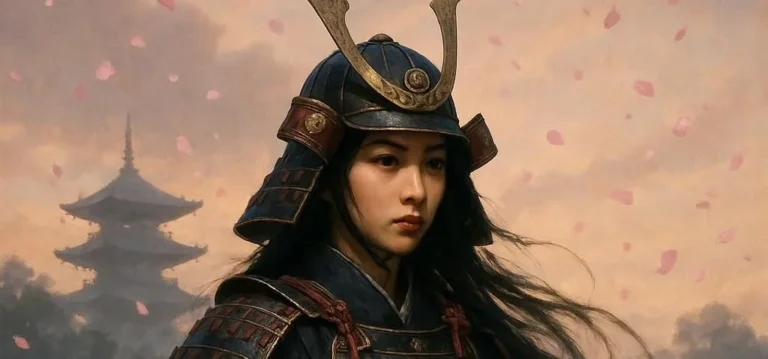507 views Bushido: The Ethical Heart of the Samurai
Bushido, the ancient code of the samurai, is more than just a set of rules for warriors; it is a profound philosophy that shaped the moral and ethical fabric of Japan for centuries. Translating to “the way of the warrior,” Bushido is rooted in honor, discipline, and self-sacrifice. This blog post delves into the history, principles, and modern relevance of Bushido, exploring how its ethical framework continues to inspire people around the world.
The Origins of Bushido
Bushido emerged during Japan’s feudal era, particularly from the 12th to the 19th centuries. It was not a formal, written code but a collection of values and practices passed down through generations of samurai, the warrior class of Japan. These values were influenced by Shinto, Buddhism, and Confucianism, blending spiritual and moral teachings into a cohesive code of conduct.
The Edo period (1603–1868) saw the codification of Bushido as a response to the relative peace of the time. With fewer battles to fight, samurai turned inward, focusing on intellectual and moral development. This period marked the rise of Bushido as a ethical system that transcended warfare, emphasizing personal growth and societal harmony.
The Seven Virtues of Bushido
At the heart of Bushido are seven core virtues that guided the behavior of samurai. These principles were not only moral guidelines but also a blueprint for living a noble and purposeful life.
1. Rectitude (, gi)
Rectitude, or moral uprightness, was the foundation of Bushido. Samurai were expected to act with integrity, adhering to a strong sense of justice and righteousness. This virtue demanded that they stand by their principles and never compromise their moral compass, even in the face of adversity.
2. Courage (, yū)
Courage was not just about bravery in battle but also about facing challenges with determination and resolve. Samurai were expected to overcome fear and persevere through difficult times. This courage extended beyond the battlefield, encouraging samurai to take bold steps in their personal and public lives.
3. Benevolence (, jin)
Benevolence, or compassion, was a cornerstone of Bushido. Samurai were taught to be kind, empathetic, and generous. This virtue emphasized the importance of helping others and contributing to the well-being of society. A true warrior, according to Bushido, was not just a fighter but also a protector and a benefactor.
4. Respect (, rei)
Respect was deeply ingrained in Bushido, encompassing etiquette, manners, and the proper treatment of others. Samurai were expected to show deference to their superiors, courtesy to their peers, and kindness to those below them. Respect was not just a social norm but a moral obligation.
5. Honesty (makoto)
Honesty and sincerity were essential virtues in Bushido. Samurai were expected to be truthful in their words and actions, avoiding deception and dishonesty. This virtue extended to all aspects of life, from personal relationships to business dealings.
6. Loyalty (, chūgi)
Loyalty was one of the most sacred principles of Bushido. Samurai were expected to be faithful to their lords, their family, and their community. Loyalty was seen as a bond that could not be broken, even at the cost of one’s life.
7. Self-Discipline (, jiritsu)
Self-discipline was the final virtue of Bushido. Samurai were expected to cultivate self-control, tempering their emotions and desires. This virtue emphasized the importance of mental and physical discipline, allowing samurai to maintain their composure in all situations.
The Historical Significance of Bushido
Bushido played a pivotal role in shaping Japanese society during the feudal era. It not only governed the conduct of samurai but also influenced the behavior of other social classes. Merchants, farmers, and artisans adopted aspects of Bushido, creating a cohesive moral framework that unified Japanese society.
Bushido also served as a unifying force during times of conflict. Samurai, as the defenders of the realm, were seen as embodiments of Bushido’s principles. Their bravery, loyalty, and sense of duty inspired others and reinforced the social order.
As Japan entered the modern era, Bushido experienced a resurgence during the Meiji period (1868–1912). The government sought to modernize the country while preserving traditional values, and Bushido was seen as a way to instill patriotism and discipline in the population. This revival of Bushido also influenced Japan’s military, shaping the country’s approach to warfare and national identity.
Bushido Beyond the Samurai
Bushido was not confined to the samurai class. Its principles were adopted by other groups, including artisans, merchants, and even commoners. The code’s emphasis on moral integrity, hard work, and loyalty resonated with people from all walks of life.
In modern times, Bushido’s influence can still be seen in Japanese culture. Many companies in Japan incorporate elements of Bushido into their corporate philosophies, emphasizing teamwork, loyalty, and dedication. The concept of “Kaizen,” or continuous improvement, owes much to the self-discipline and perseverance championed by Bushido.
Moreover, Bushido’s ethical framework has gained international attention. Its emphasis on honor, compassion, and self-control offers a universal message that transcends cultural boundaries. People around the world have found inspiration in Bushido’s teachings, applying its principles to their personal and professional lives.
The Modern Relevance of Bushido
In an age marked by rapid change and moral ambiguity, Bushido’s teachings offer timeless wisdom. Its emphasis on ethical living, personal responsibility, and social harmony provides a roadmap for navigating life’s challenges.
For individuals, Bushido offers a path to self-improvement. By embracing virtues such as self-discipline, honesty, and respect, people can cultivate a sense of purpose and direction. The code’s focus on perseverance and courage also encourages individuals to face adversity with resilience and determination.
Bushido’s principles are equally relevant in the workplace. In an increasingly competitive and often cutthroat business environment, the code’s emphasis on loyalty, integrity, and compassion provides a much-needed alternative. Companies that adopt Bushido’s values often find that they foster a more cohesive and motivated workforce.
On a broader scale, Bushido’s emphasis on respect and benevolence offers a vision for a more harmonious society. In a world often divided by conflict and inequality, the code’s teachings remind us of the importance of empathy, cooperation, and mutual respect.
Conclusion
Bushido, the ethical heart of the samurai, is more than a relic of Japan’s feudal past. It is a living philosophy that continues to inspire people around the world. Its emphasis on moral integrity, self-discipline, and compassion offers a timeless message that transcends cultural boundaries.
As we navigate the complexities of the modern world, Bushido’s teachings remind us of the importance of living with purpose and principle. Whether in our personal lives, our workplaces, or our communities, the code’s ethical framework provides a powerful guide for creating a more just and harmonious world.
In essence, Bushido is not just the way of the warrior; it is a way of life. Its principles of honor, loyalty, and compassion continue to resonate with people from all walks of life, offering a path to ethical living in an ever-changing world. Let us draw inspiration from Bushido’s timeless wisdom and strive to embody its virtues in our own lives.







